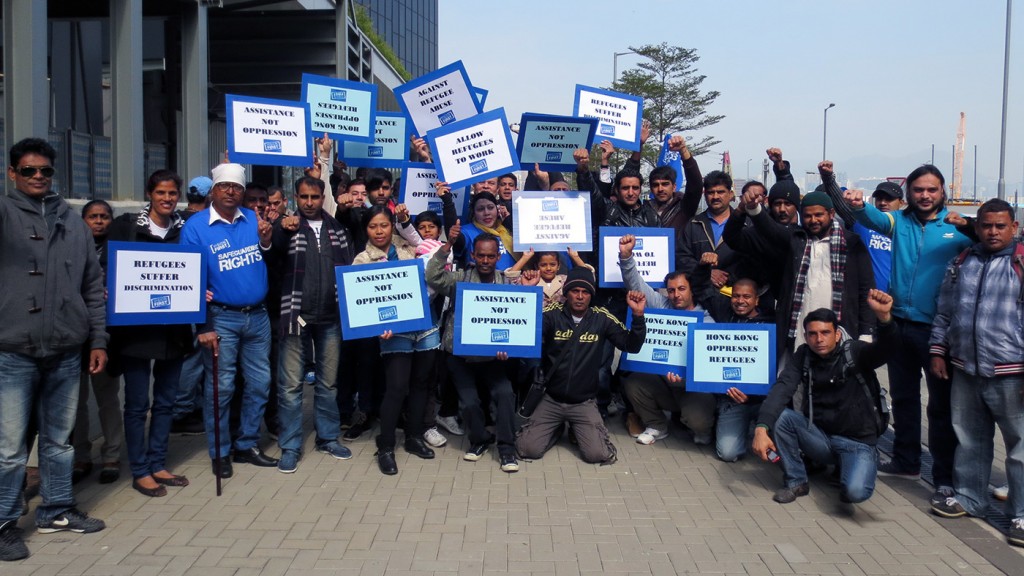
Outspoken refugees are on a writing spree. Many of Vision First’s recent blogs featured our members sharing experiences of deprivation and destitution in Hong Kong, the latter remarkably a condition that the HK government supposedly aims to prevent by providing ‘in-kind’ humanitarian assistance.
The latest of these blogs, Rashid’s testimony of suffering at the hands of ‘the law system force refugees to do crime’, shines a spotlight on a problem that few ever raise despite it being well known.
Several questions spring to mind. Is the government hiding behind a humanitarianism smokescreen to undermine refugees’ civil rights and effectively force deprivation upon them? Is there a covert goal to raise their visibility in the criminal justice system? Do welfare strategies cunningly reinforce propaganda depicting refugees as undesirable illegal economic migrants and criminal abusers?
Rashid’s story raises a number of problems that we believe ought to be urgently addressed by the authorities.
First, upon release from detention ‘humanitarian’ assistance isn’t available for several months, which increases the vulnerability of newly arrived refugees to economic abuse and exploitation. “A middle-class dog is treated better”, Rashid astutely observes. For weeks he slept rough in a public park, deprived of basic accommodation he could not afford on his own after agreeing with Immigration he would not work.
Second, talented refugees are turned into beggars and ‘terrorist-looking’ individuals, a dehumanizing process that arguably raises their categorization into a homogeneous group enclosed by clearly defined boundaries that set them as extraneous bodies in a wealthy global city where rightful residents are expected to be self-reliant.
Third, excluded from society, refugees are mentally tortures, deprofessionalized and deprived of their liberty. They are unlawfully detained in a “walking prison”, Rashid plaintively laments. Government control capacity has expanded in late modernity to a point that it need not lock people up anymore. Instead, states may exclude undesirable behaviour by creating labels that immediately cast bearers as outcasts, forcing their marginalization and surveillance.
Fourth, Rashid’s story is exemplar in that he perceptively understands the causation of the resultant problems. “Is the law fair?” he ponders distrustfully. While he certainly wants to believe so, he mournfully notices that it is indeed the law and its implementation that force refugees to find their way out of an untenable situation by seeking personal survival through legal or illegal ways.
Shackled by the twin chains of inadequate welfare and work ban, refugees speak of an ugly reality nobody dares to cast in the spotlight. Such an inconsistency cannot be ingenuously unplanned. Meanwhile an entire generation of people is lost to crime, crushed by the wheel of a repressive justice system. Why is this happening?



As a social worker myself, living in Germany, I cannot believe people are treated this way in a developped city as Hong Kong. How is it possible protection claimants are worse off than being in prison. Why aren’t they allowed to work? Is it better to force them into crime than giving them essential opportunities to live a somewhat reasonable life after fleeing their country for various horrible reasons? Arriving in Hong Kong washes away that little bit of hope they still had. No, it’s far worse… It enlarges their trauma, which gives them less chances to ever succesfully resettle in a third country.